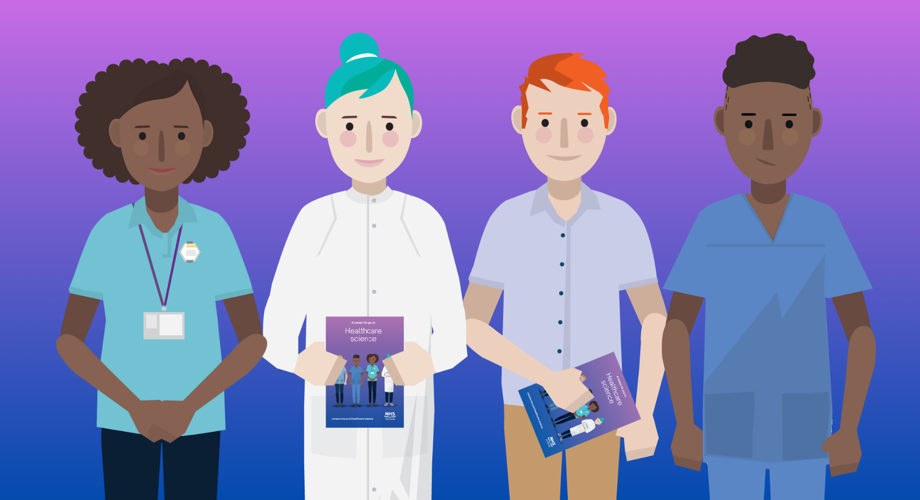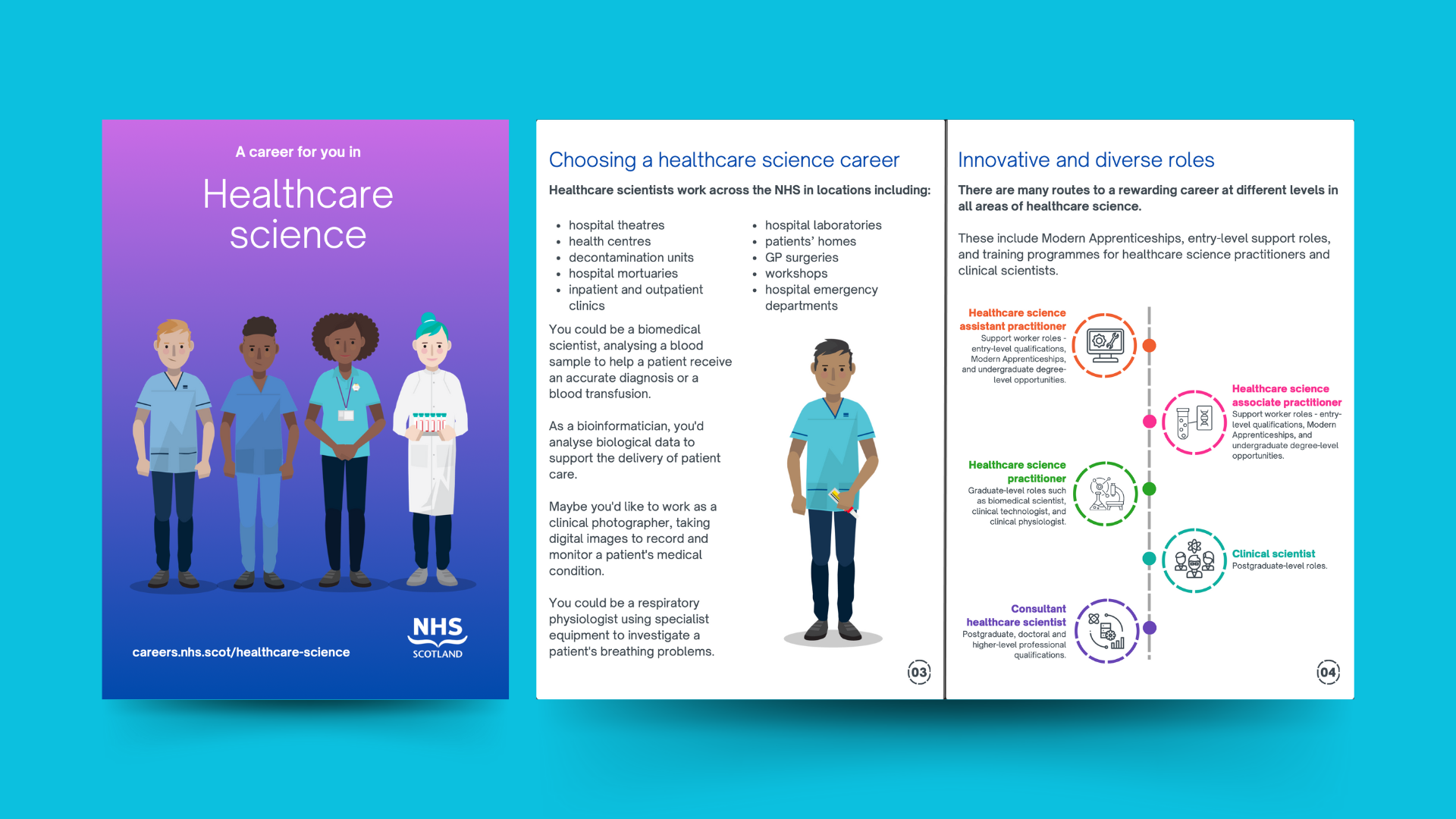
NHSScotland Careers
12 March 2024
•3 min read

More than 50 different careers in healthcare science
Did you know that there are more than 50 different healthcare science careers? Healthcare scientists work in one of these 4 areas:
- physical sciences and clinical engineering
- bioinformatics and data science
- life sciences
- physiological sciences
Who are healthcare scientists?
Healthcare scientists use science, data, product design, and engineering to do the following:
- Prevent, diagnose, monitor, and treat medical conditions.
- Commission and maintain medical equipment.
- Provide rehabilitative care to assist in the management of long-term medical conditions.
- Design and develop custom medical devices.
- Make, adapt, and improve assistive technology.
The healthcare science workforce is involved in 80% of diagnostic decisions throughout the patient journey. Some work behind the scenes, while others have regular direct contact with patients. Whatever their role, they’re at the heart of improving healthcare and advancing scientific development through research, technology, and innovation.
Innovative and diverse roles
Healthcare scientists work across the NHS in locations including:
- hospital theatres
- inpatient and outpatient clinics
- decontamination units
- hospital mortuaries
- emergency departments
- hospital laboratories
- health centres
- GP surgeries
- workshops
- patients’ homes
You could be a biomedical scientist, analysing a blood sample to help a patient receive an accurate diagnosis or a blood transfusion. As a bioinformatician, you'd analyse biological data to support the delivery of patient care. Maybe you'd like to work as a clinical photographer, taking digital images to record and monitor a patient's medical condition. You could be a respiratory physiologist using specialist equipment to investigate a patient's breathing problems.
Choosing a healthcare science career
There are many routes to a rewarding career at different levels in all areas of healthcare science. These include Modern Apprenticeships, entry-level support roles, and training programmes for healthcare science practitioners and clinical scientists.
Physical sciences and clinical engineering
Physical sciences and clinical engineering staff play a vital role in the healthcare system. They use advanced techniques and technologies to diagnose, monitor, and treat patients' medical conditions.
Through their expertise, physical sciences and clinical engineering staff test, maintain, and improve medical equipment, making sure that it works effectively and safely. They also design and create medical devices and assistive technologies tailored to meet patients' specific needs. The environment and equipment used for therapy are also carefully monitored to ensure the safety of both patients and staff.
Bioinformatics and data science
In bioinformatics and data science, large amounts of biological data are studied and analysed to support patient care. They work with other healthcare science staff to develop and improve the software applications and methods used to acquire, organise, store, and analyse biological data.
In bioinformatics and data science, large amounts of biological data are studied and analysed. Bioinformaticians work collaboratively with other healthcare sciences staff to develop and enhance software applications and methods used for acquiring, organising, storing, and analysing biological data. By using the latest advances in technology and data analysis, bioinformaticians work to make a meaningful impact on patient care and improve healthcare outcomes.
Life sciences
Working in life sciences offers exciting career opportunities.
Life sciences is divided into 4 main areas:
- blood sciences
- cell sciences
- gene sciences
- infection sciences
In hospital laboratories, staff analyse biological samples such as blood and tissue. Their work has a significant impact on clinical decisions, making sure that patients receive accurate diagnoses and effective treatment for their medical conditions, injuries, or diseases. The role played by life sciences staff is vital to improving the quality of patient care.
Physiological sciences
Clinical physiology staff use specialised equipment, techniques, and technology to investigate the physiological functions of the human body.
They specialise in one of the following areas:
- Audiology - they assess a person’s hearing and provide support and advice to those using assistive listening devices, including hearing aids.
- Cardiac sciences - they carry out a range of cardiac investigations to obtain diagnostic information about a patient’s heart.
- Gastrointestinal physiology - they carry out tests to assess a person’s gastrointestinal function.
- Neurophysiology - they prepare patients for neurophysiology investigations and provide support.
- Ophthalmic and vision science - they measure a patient’s field of vision and pressure in their eyes.
- Respiratory physiology - they carry out a range of tests to measure a patient’s breathing.
- Sleep physiology - they carry out a range of tests, including overnight sleep studies, to improve a patient’s sleep quality.
- Vascular science - they carry out ankle brachial pressure index tests to detect or rule out the presence of peripheral arterial disease.
- Clinical perfusion - they monitor and manage a patient’s blood flow, body temperature, and respiratory functions during cardiac surgery.
Clinical physiology staff work in various patient-facing settings such as hospitals, inpatient and outpatient clinics, wards, and operating theatres. Their main role is to help diagnose diseases and abnormalities and provide specialist information so doctors can plan patients' medical treatment.

Your career in healthcare science
Ready to discover some of the healthcare science careers you can choose in the NHS? Where should you begin? Download our healthcare science career guide to get an insight into a wide range of opportunities.